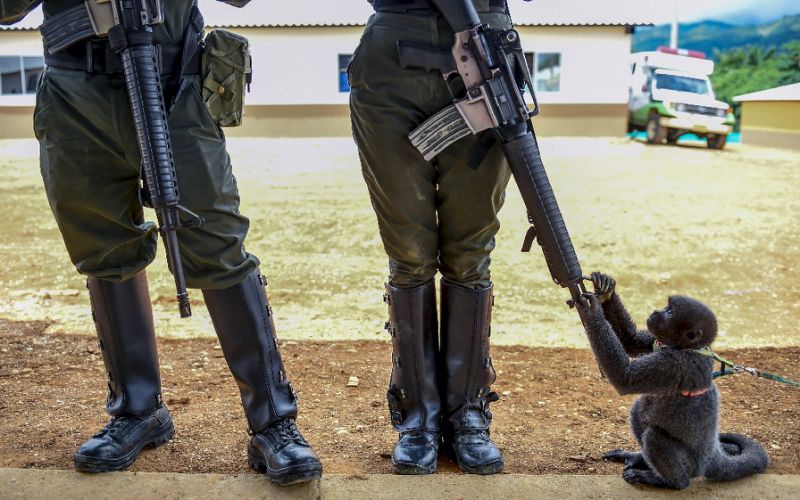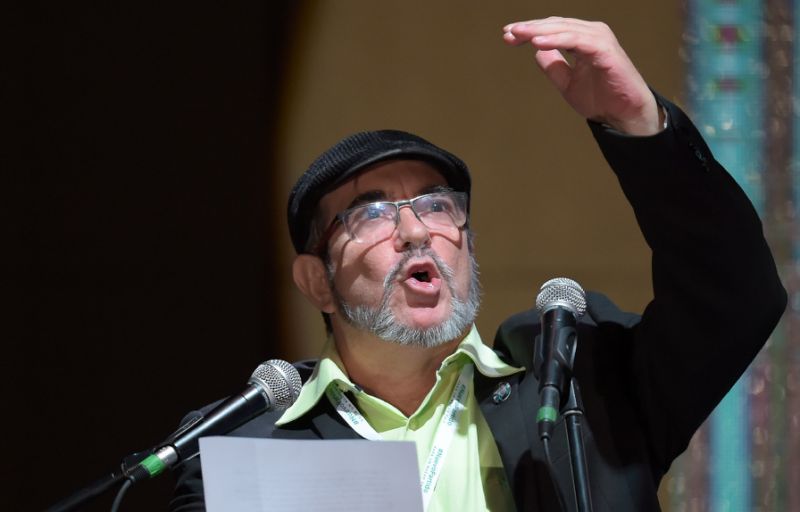
A monkey holds the rifle of a policewoman in a former FARC guerrilla training centre in Montanita, Colombia (Photo - Raul Arboleda - AFP)

FARC guerilla leader Rodrigo Londono, also known as "Timochenko," will run in 2018's presidential election (Photo - Raul Arboleda - AFP)
The EU on Monday removed Colombia's FARC from its list of terrorist organisations, an official told AFP, after the former guerilla movement disarmed as part of a peace deal and relaunched itself as a political party.
The Revolutionary Armed Forces of Colombia (FARC), which battled the government for half a century in a conflict that left some 260,000 people dead, reached a historic peace deal last year and its former leader now plans to run for president.
The decision to remove FARC from the list permanently comes after the EU suspended its terror listing in September 2016 in a bid to help the peace process in Colombia.
"The Council adopted the legal acts providing for the de-listing of the FARC from the EU list of individuals and entities subject to restrictive measures to combat terrorism," an EU official told AFP, adding that the decision would be announced officially on Tuesday.
After agreeing to the peace deal and disarming, the rebels transformed their movement into a political party, keeping the same initials but changing the official name to the Common Alternative Revolutionary Force.
Rodrigo Londono, 58, the group's guerilla leader better known by his nickname "Timochenko", will run in the presidential election for the party, with the first round of voting scheduled for May 2018.
The UN has heard of concerns about progress under the peace deal. There are warnings that the reintegration of former fighters is not progressing well, with many finding it difficult to return to civilian life.
FARC's demobilisation has also triggered battles over territory it used to control, the Organization of American States warned last week, particularly areas linked to the drug trade.


